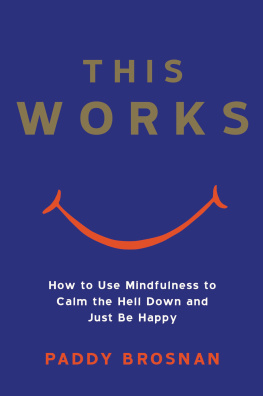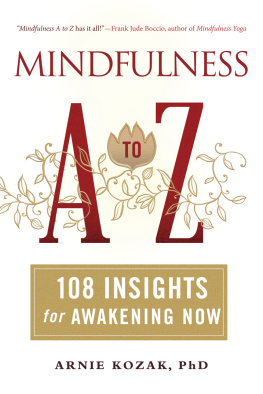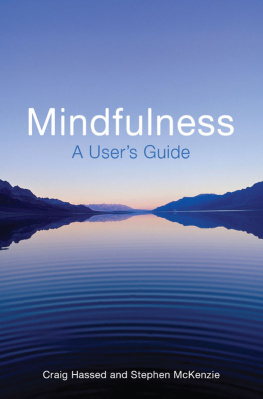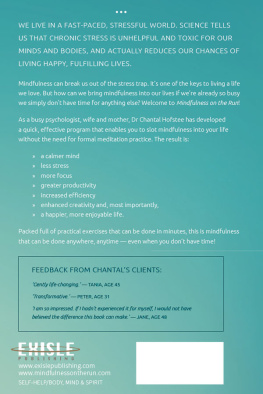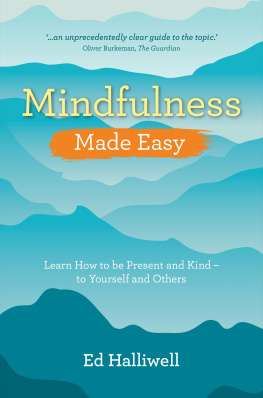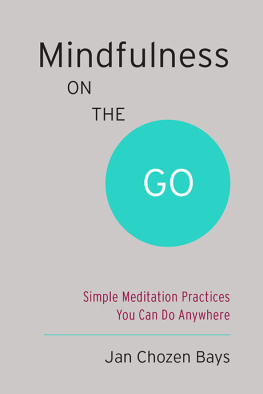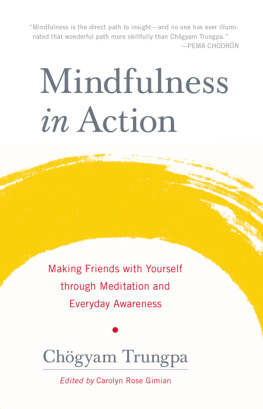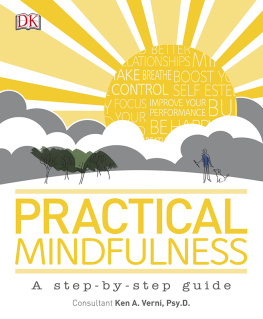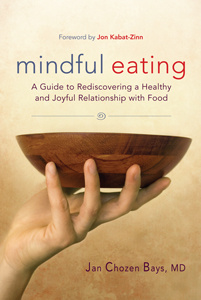
Published in the United Kingdom by:
Hay House UK Ltd, Astley House, 33 Notting Hill Gate, London W11 3JQ
Tel: +44 (0)20 3675 2450; Fax: +44 (0)20 3675 2451
www.hayhouse.co.uk
Published in the United States of America by:
Hay House Inc., PO Box 5100, Carlsbad, CA 92018-5100
Tel: (1) 760 431 7695 or (800) 654 5126
Fax: (1) 760 431 6948 or (800) 650 5115
www.hayhouse.com
Published in Australia by:
Hay House Australia Ltd, 18/36 Ralph St, Alexandria NSW 2015
Tel: (61) 2 9669 4299; Fax: (61) 2 9669 4144
www.hayhouse.com.au
Published in India by:
Hay House Publishers India, Muskaan Complex, Plot No.3, B-2,
Vasant Kunj, New Delhi 110 070
Tel: (91) 11 4176 1620; Fax: (91) 11 4176 1630
www.hayhouse.co.in
Text Paddy Brosnan, 2018
The moral rights of the author have been asserted.
All rights reserved. No part of this book may be reproduced by any mechanical, photographic or electronic process, or in the form of a phonographic recording; nor may it be stored in a retrieval system, transmitted or otherwise be copied for public or private use, other than for fair use as brief quotations embodied in articles and reviews, without prior written permission of the publisher.
The information given in this book should not be treated as a substitute for professional medical advice; always consult a medical practitioner. Any use of information in this book is at the readers discretion and risk. Neither the author nor the publisher can be held responsible for any loss, claim or damage arising out of the use, or misuse, of the suggestions made, the failure to take medical advice or for any material on third-party websites.
A catalogue record for this book is available from the British Library.
Tradepaper ISBN: 978-1-78817-121-2
E-book ISBN: 978-1-78817-125-0
Audiobook ISBN: 978-1-78817-300-1
To Faye, thank you for your learning, teaching, belief and love. Your acceptance of my mad ideas never fails to amaze me and is the definition of true love.
To Tiernan and Odhrn, thank you for teaching me so much and for choosing me to be your dad.
Contents



So many people have put huge effort into getting this book out into the world and making me comprehensible, and I offer great gratitude to them all. My thanks to Amy Kiberd, who showed such belief in the book, Michelle Pilley and the entire team at Hay House for their effort, patience and understanding. The fact that you are able to read this book in a coherent form is in large part down to Susan Feldstein, who gave me some guidance in putting the book together, and Sandy Draper who edited This Works. However, any mistakes there may be are entirely mine.
Thanks too is due to Susan and Paul, my agents, who saw some merit in what I had to say and put their reputation on the line by agreeing to represent me.
My family Faye, Tiernan and Odhrn are due a lot of thanks too. They have sacrificed many hours in bed, getting up at 4 a.m. to help at my workshops which in many ways form the basis for this book. Without their hard work, patience, support and belief I wouldnt be able to do this work. For this and the many other gifts they have given me, I love them dearly.
The thousands of people who have attended my workshops have taught me so much, and to them I am also very grateful.
I am fortunate to have friends who accept my strangeness and sometimes even encourage it thank you!
Of course, nothing in this book is particularly original and my greatest debt of gratitude is to my teachers. Some I have had the great privilege of meeting the Venerable Panchen trul Rinpoche and the Venerable Thich Nhat Hanh. The presence of these teachers in the world is a gift to all of us. Others, including Dzongsar Jamyang Khyentse and Yongey Mingyur Rinpoche, have contributed greatly to my progress along the path with their teachings. May you all stay until suffering ends.
You are not your thoughts and feelings, you are the awareness in which they exist.

There is, so I believe, in the essence of everything, something that we cannot call learning. There is, my friend, only a knowledge that is everywhere, that is Atman,that is in me and you and in every creature, and I am beginning to believe that this knowledge has no worse enemy than the man of knowledge, than learning.
SIDDHARTHA, HERMAN HESSE
Several years ago, when I was thinking about offering public workshops on mindfulness, I spent some time at Jampa Ling retreat in Cavan in Ireland. I wanted to be clear about my motivation for wanting to teach and that my intentions came from a place of integrity. Having practised mindfulness for a decade by that time, Id become increasingly aware of the rise in public popularity of the practice. Surely this could only be a good thing?
But I had noticed too that, with mindfulness, we were doing what we in the West always seem to do with the things we bring here from the ancient wisdom traditions and that is, making it all so ridiculously complicated. All at once mindfulness had become the buzzword of the moment. Now you could get degrees in mindfulness; you could take and teach courses in MBSR (mindfulness-based stress reduction) or mindfulness- based CBT (cognitive behaviour therapy), or even MIBS (mindfulness for irritable bowel syndrome); universities were setting up Mindfulness departments, as were hospitals in their Psychiatry outpatient units. To be able to talk about mindfulness with any authority, it seemed you now had to be a high-ranking academic or a world-renowned expert: a professor of psychiatry, a clinical psychologist or a distinguished neuroscientist.
Yet one of the things that has always attracted me to the practice is its sheer simplicity. The way mindfulness can help us tap into truths we know at an instinctive level (but often lose sight of), and the fact that it is accessible to everybody. Did I a radio presenter turned investment advisor turned dog groomer really have anything to contribute? Could I add something to the debate and, most importantly, could I bring something useful to other people?
On my final day in Cavan, I shared some of my concerns with the Venerable Panchen trul Rinpoche, the distinguished Tibetan Buddhist lama and Spiritual Director of Jampa Ling.
His response to my questions was totally unexpected and completely enlightening. As soon as I mentioned that universities were now offering Masters degrees in mindfulness and that a lady Id been talking to about offering courses had asked me for my professional qualifications, Rinpoche collapsed into a fit of giggles, which continued for quite some time. After a while, as I sat in front of him nonplussed, two of his attendants came in to see what was happening. Since he was close to 80 years old at the time, those around him were always vigilant for his welfare. I was glad to see them, as I was beginning to worry that my questions and his response might perhaps have done him some kind of physical harm!
Once Rinpoche caught his breath, he finally managed to say, But how on earth would they examine you? Then he dissolved into another fit of laughter. It was clearly one of the funniest and most bizarre things he had heard in a long time.
Rinpoche is an erudite and highly educated man with a number of degrees to his name, including the highest degree in Tibetan Buddhist philosophy (
Next page
